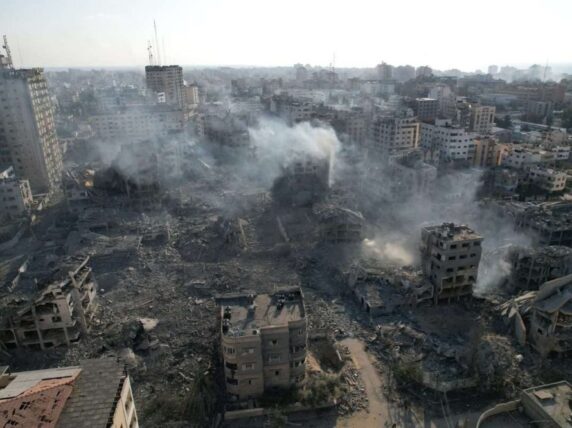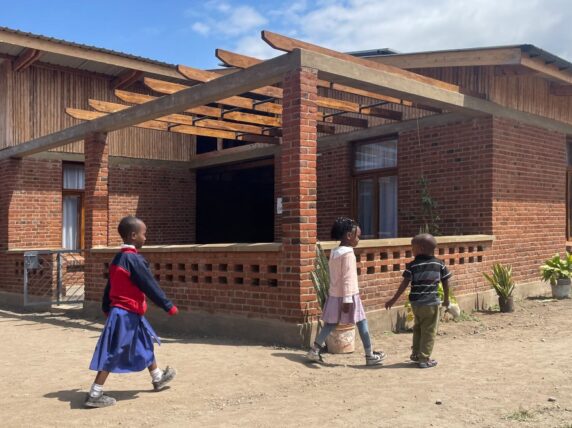What would inclusive economic development look like?
Beginning at dawn working for the whole day. It would be good to work some hours per day. It is an over-exploitation what people are doing to themselves.
Danilo, 26, Batallas, Bolivia
We can live well if we have many things to do but here we are poor. Some of us cultivate from morning to evening, everyday. You come home tired and you have to cook food, but then you have other things to do [as we have to] raise money from many sources.
Johnson, 70, Bugondo, Uganda
It is because of pollution from the factory; cough, cold and fever. It’s really a dilemma between our health and source of income‚ if the factory closes, we will have nothing to eat.
Workshop participant, Kiwalan, Philippines1
These people are all working.
They are all participants in economic processes. And yet this participation isn’t meaningful; they are working, but they are not included in the benefits and returns. The rewards aren’t fair, the costs are high.
Subscribe to our newsletter
Our weekly email newsletter, Network News, is an indispensable weekly digest of the latest updates on funding, jobs, resources, news and learning opportunities in the international development sector.
Get Network NewsThis is economic development at play, but people’s lived experiences show that this isn’t truly inclusive. And it’s not environmentally sustainable. This is the area that we as the Bond Private Sector Group are most actively involved in; learning from our partners in the communities in which we work and then advocating around an approach to economic development that is truly inclusive and sustainable.
4 ways inclusive economic development differs from business as usual
- Marginalised economic actors (including informal workers, disabled people, women and youth in poverty, particularly in fragile states or crisis) must have equitable access to economic opportunities. Both policy and practice must promote this access. We must also focus our efforts on the sectors and systems2 that are most important for people in poverty, and on those most likely to support stability and worthwhile livelihoods in fragile contexts.
- It is not enough to simply provide opportunities. Marginalised people need support to be able to meaningfully participate in these and influence economic development more broadly. For example, recognising worker rights, worker representation, voice and agency in economic planning and decisions, along with education, skills development and capacity building are all important.
- Inclusive economic development requires fair outcomes and financial returns received for work. This means ensuring the International Labour Organisation’s decent work standards and promoting non-discriminatory, gender-sensitive labour rules and business environments which take account of the working conditions and needs of the poorest.
- Short-term initiatives which may have economic benefits, but which degrade or destroy the environment, ultimately reduce the potential for the work of tomorrow and are not in line with a truly inclusive approach. Inclusive economic development must operate within planetary boundaries and promote both the sustainable use of natural resources, and climate protection. Additionally, approaches must appropriately incentivise and de-risk sustainable investment and behaviours so that private sector actors adopt sustainable new practices.
We all struggle to address these intersecting challenges in our work. We think there needs to be a pragmatic approach to inclusive economic development which is rooted in the current realities, trends and constraints that low-income countries are facing. The SDG priorities of “leave no-one behind”, environmental sustainability and a commitment to tackling inequality are central to this approach.
Have a read of our recent briefing note which unpacks what this approach looks like for marginalised economic actors (particularly those working informally and with women), and what this looks like in fragile and conflict affected states.
The Private Sector Group influences policy and practice to promote inclusive and pro-poor approaches to private sector and economic development. Join the group.
Notes
- Extracts from participant workshop interviews, Setting the post-2015 development compass – voices from the ground [PDF]
- The sectors and systems that are important to people living in poverty will differ according to country context. This local context needs to be carefully analysed to see firstly where people are working and then where the greatest decent work deficits and lack of environmental sustainability is. The sectors or systems at these intersections will be important. As an example there is growing evidence that agriculture (particularly organic or regenerative agriculture, and specifically where this is in food rather than purely cash crops) and energy (particularly distributed renewable energy) are significant sectors of the future – See Trace 2017 and Poschen 2015 for further examples.
Category
News & Views



